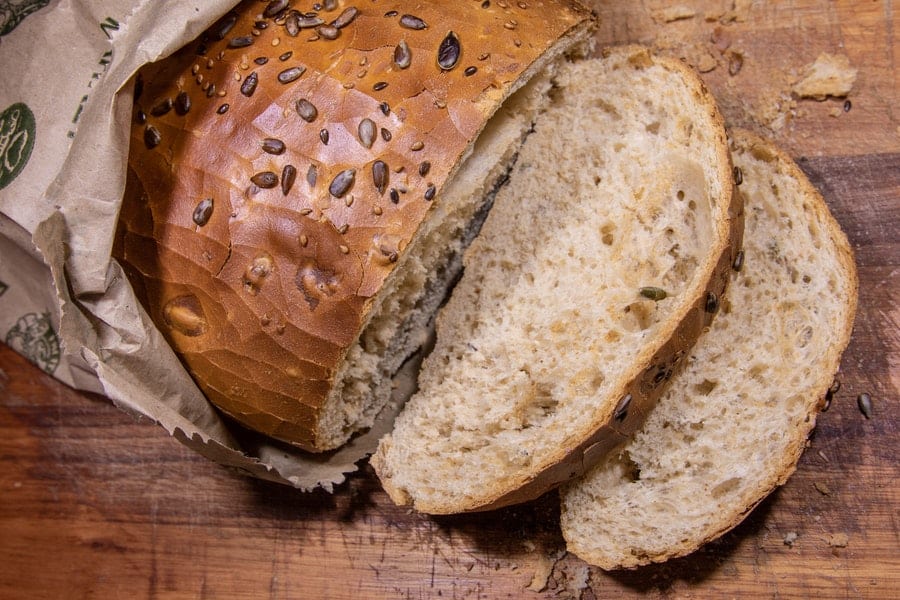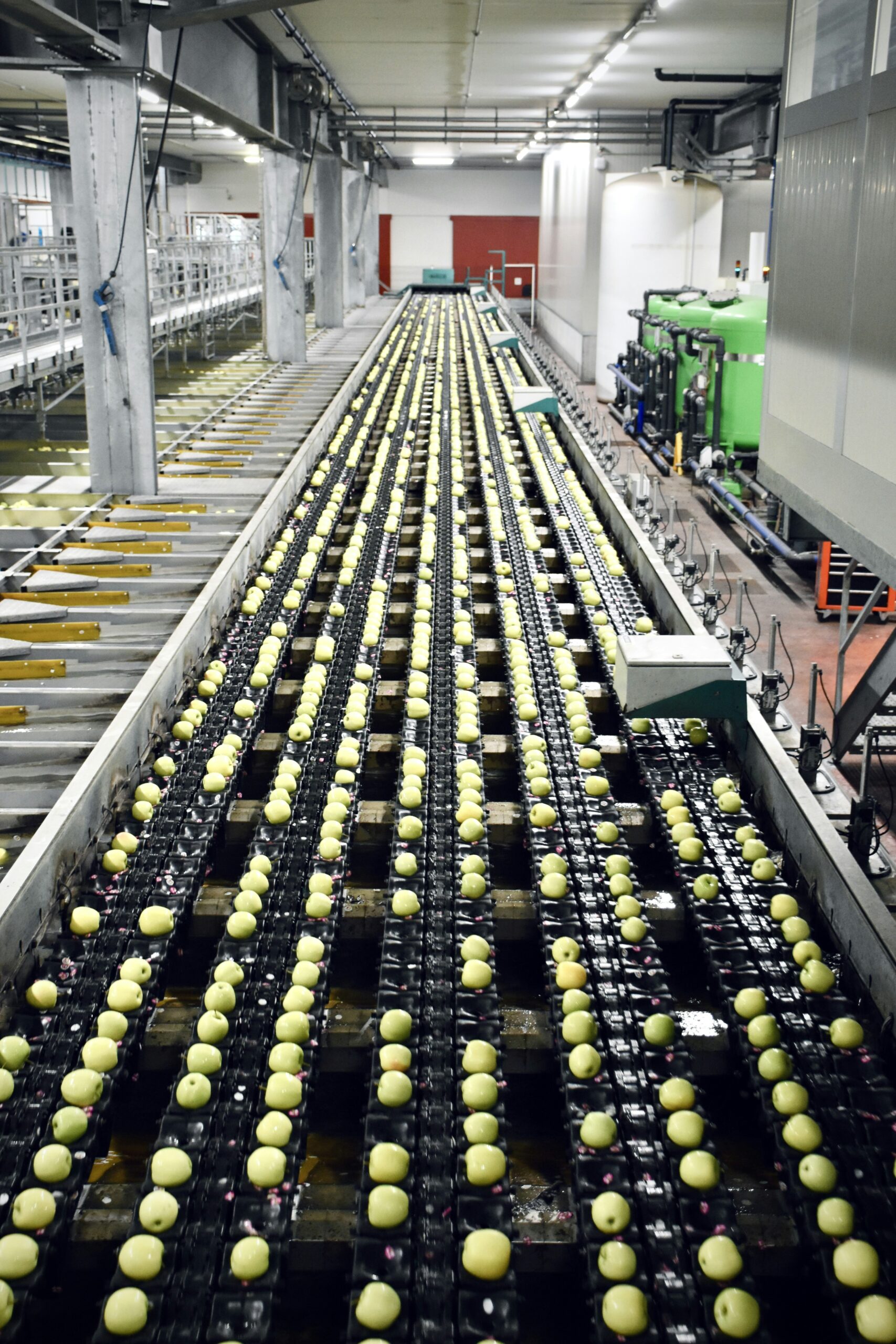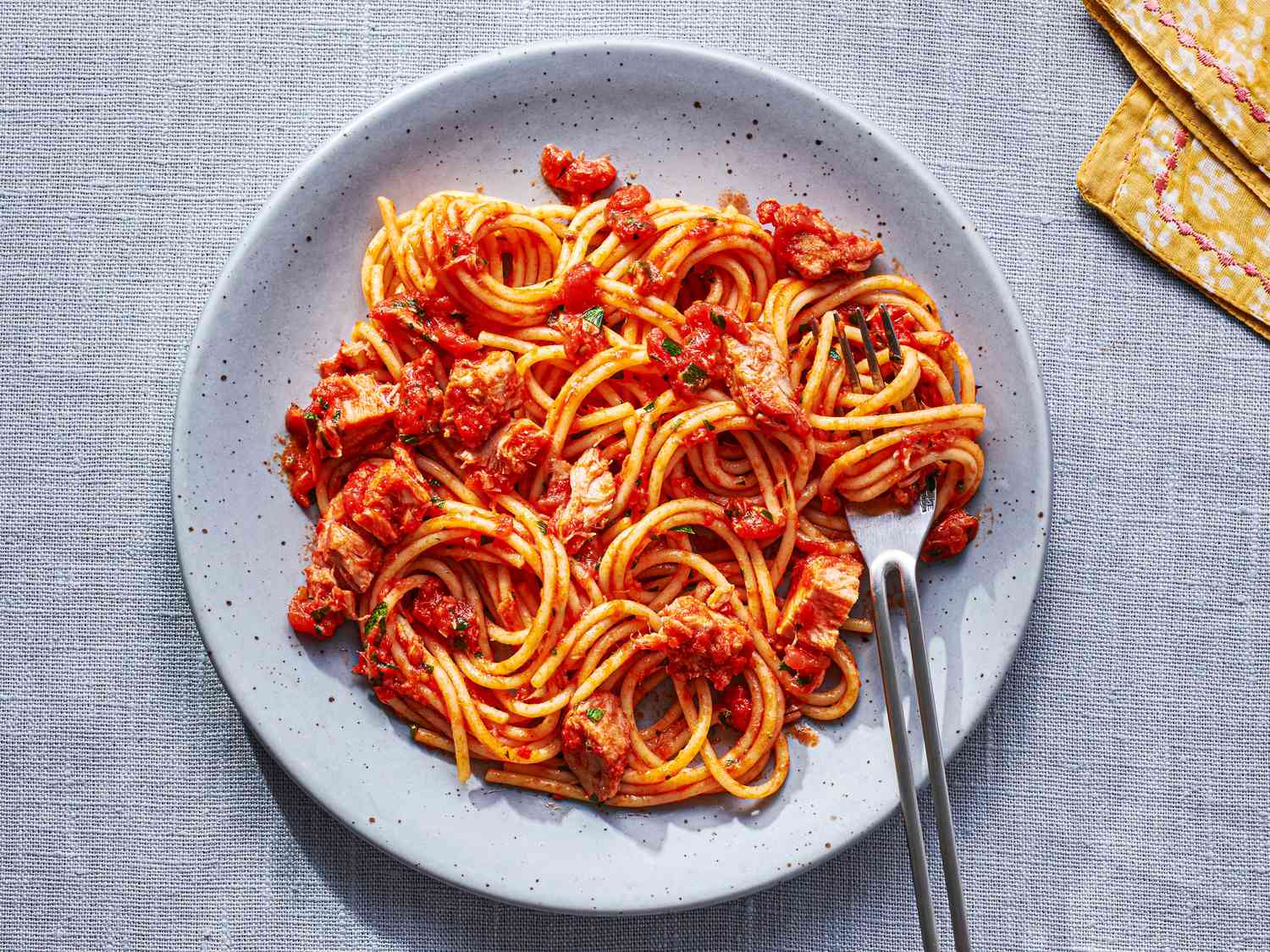Getting hiccups when eating dry food, like bread, can be due to a few simple reasons. Dry food can tickle or irritate your throat, and it’s harder to chew and swallow, which may lead to swallowing larger pieces and stretching your stomach.
Also, eating rapidly can make you swallow more air, which triggers hiccups. The irritation caused by the dry bread in your throat can also set off the hiccup reflex. Overeating or having a sensitivity to certain bread ingredients can contribute to the problem.
If hiccups while eating bread are bothersome, try eating slowly and having some water with your meal. If the issue persists, it’s a good idea to consult a doctor to rule out any underlying problems.
Let’s explore details regarding this situation.
Common Causes of Hiccups When Eating
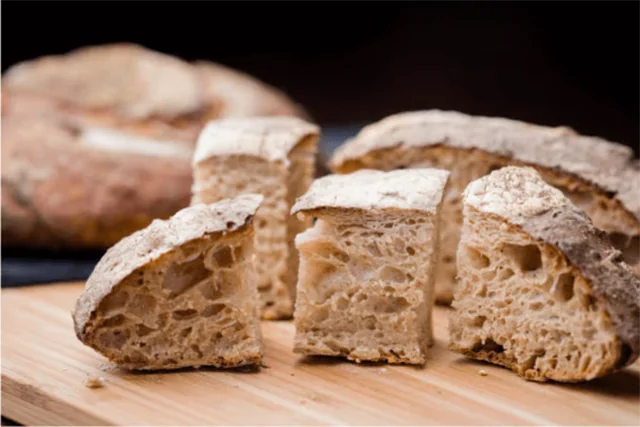
Eating Hastily: One of the simplest explanations for post-bread hiccups is the rapidity of consumption. Swift eating can result in inadvertent air swallowing, causing irritation to the diaphragm.
This is especially relevant when dealing with bread, as it may be inadequately chewed. The remedy here is to chew your food slowly and conscientiously, preventing the unintentional ingestion of air.
Allergic Reactions: For some individuals, hiccups after bread consumption may be linked to allergic reactions. Conditions like gluten sensitivity or celiac disease can manifest with various symptoms, including hiccups.
Also, when the immune system reacts to gluten, it can lead to inflammation and spasms in the diaphragm. If you suspect an allergy, consult a medical professional for a thorough evaluation and guidance on allergy management.
Non-Food Irritants: It is often paired with condiments and spreads that may contain irritants. Spicy or acidic additives, for instance, can provoke irritation in the esophagus and trigger the hiccup reflex. It’s important to be mindful of the ingredients accompanying your bread-based meals, as these may serve as potential triggers.
Food Poisoning: Occasionally, it might signal food poisoning resulting from contaminated bread or its components. Bacterial contaminants like Salmonella or E. coli can lead to gastrointestinal distress, which may include hiccups.
Then, if you experience them along with symptoms such as nausea, vomiting, and diarrhea, it’s prudent to consider the possibility of food poisoning and seek prompt medical attention if needed.
Low Stomach Acid Levels: Digestive issues, such as inadequate stomach acid production, can also be linked to hiccups. When the stomach fails to produce sufficient acid, the digestion process may be compromised, leading to food fermentation.
Further, this fermentation can release gases that irritate the diaphragm, triggering hiccups. Addressing low stomach acid levels often involves dietary adjustments, and consultation with a healthcare professional is advisable.
Temperature Variations: Eating bread alongside extremely hot or cold foods and beverages may induce hiccups. Sudden temperature changes in the esophagus can stimulate the vagus nerve, a key player in the hiccup reflex. Thus, consuming piping-hot bread or pairing it with extreme temperature contrasts may contribute to it.
Alcohol Consumption: Alcohol intake before or after consuming bread can relax the lower esophageal sphincter, a muscular ring separating the esophagus from the stomach. This relaxation may lead to increased air intake and potential irritation, culminating in hiccups. Avoiding alcohol in close proximity to bread consumption can help minimize this risk.
Heart Disease: While hiccups are typically benign, persistent and severe hiccups can rarely serve as an indicator of underlying health issues, including heart disease. In some cases, irritation of the phrenic nerves that control the diaphragm may be associated with cardiac problems. If hiccups are accompanied by alarming symptoms such as chest pain, it is imperative to promptly consult a medical professional for a thorough evaluation.
How To Stop Getting Hiccups When You Eat Bread?
- Try breathing in and out into a paper bag, which might help regulate your breathing and stop hiccups.
- Hold your breath for 15 to 20 seconds. This can sometimes stop hiccups.
- Bend your body by hugging your knees and leaning forward. This can gently push on your diaphragm and might stop hiccups.
- Try bearing down while holding your breath. This can break the hiccup cycle.
- Drink water or ice water to stimulate your throat and potentially stop hiccups. Gargling with water might help too.
- Sucking on a lemon can stimulate your taste buds and nerves, which might help stop hiccups.
- Try to slow down and relax your breathing. This can interrupt the hiccup pattern.
- Eat a teaspoon of white sugar, which can be a sensory distraction and may help with hiccups.
- Drinking warm water with honey can soothe your throat and potentially stop hiccups.
- Ask someone to try to startle you. A sudden fright might stop hiccups.
Preventing Hiccups After Eating
To avoid getting hiccups after eating, keep these things in mind:
- Avoid foods that are very sour.
- Don’t drink too much alcohol.
- Stay away from fizzy drinks.
- Eat slowly; don’t rush your meal.
- Be careful with very spicy or hot foods.
- Don’t overeat; watch your portions.
- Try not to swallow air while eating.
- Avoid talking while you’re eating.
- Choose drinks that are not extremely cold.
Different Types Of Hiccups
| Type of Hiccups | Causes | Effects on the Body |
| Catarrh Hiccups | Result from airway and sinus congestion | Pressure or pain in the head and chest, often due to mucus buildup caused by colds, allergies, sinus infections, or hay fever. |
| Gastric Hiccups | Stem from indigestion and poor stomach function | Indigestion and bloating, which can lead to gas pain, vomiting, and hiccups due to low stomach acid levels resulting from digestion issues. |
| Constipation Hiccups | Arise from inadequate digestion and constipation | Gas pain and discomfort due to inefficient digestion, which may result from inadequate stomach acid levels and the accumulation of gas in the digestive system. |
Why Does Eating Bread Cause Me to Get Hiccups?
| Factors | Contributing Conditions | Hiccup Triggers |
| Irritable Bowel Syndrome (IBS) | Poor digestion, IBS | Gas pain, bloating, indigestion, low stomach acid levels, leading to hiccups. |
| Bacterial Overgrowth | Poor digestion, bacterial overgrowth | Bloating, indigestion, diarrhea, constipation, and excess gas, which result in hiccups. |
| Yeast Infection | Poor digestion, stress, medication, yeast overgrowth | Weakened intestinal wall, unchecked yeast growth, and subsequent hiccups. |
| Vitamin B12 Deficiency | Low stomach acid levels, poor digestion, bacterial overgrowth | Deficiency linked to bacterial overgrowth, diarrhea, constipation, and gas accumulation, leading to hiccups. |
When to consult a doctor if you have hiccups?
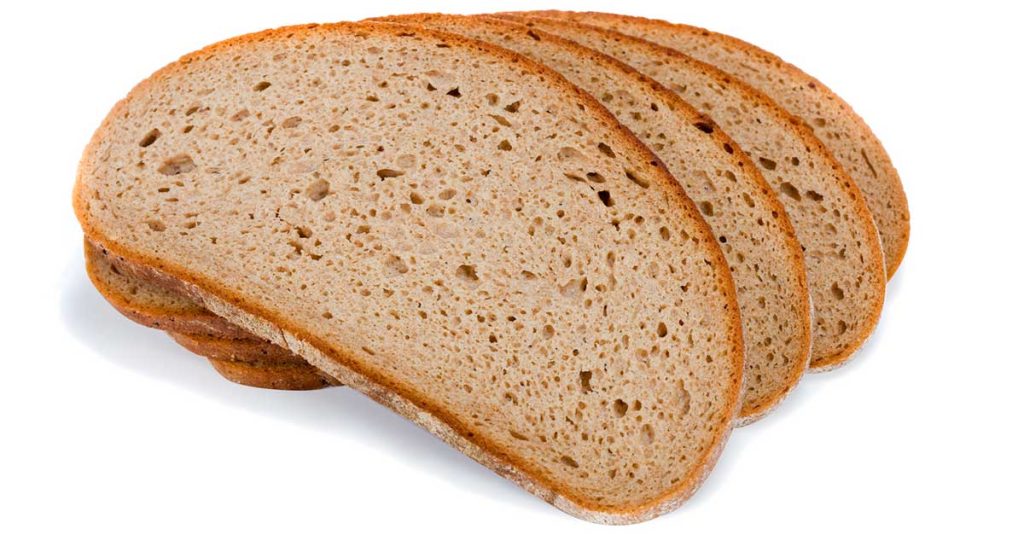
Hiccups usually go away on their own within 48 hours. However, if hiccups persist for more than 48 hours, they’re called persistent hiccups. If they endure for over two months, they’re termed intractable or chronic hiccups. These longer-lasting hiccups can be linked to various conditions, both serious and minor.
It’s essential to consult a doctor if hiccups last more than 48 hours in both children and adults. On the other hand, if hiccups don’t last that long but significantly disrupt your daily life, such as sleep or eating, it’s a good idea to seek medical advice.
In some rare cases, hiccups can be a unique sign of heart problems. For instance, there was a case of a person who had hiccups for several days and turned out to be having a heart attack, even though he didn’t display the usual heart attack symptoms.
Some older reports suggest a possible connection between persistent hiccups and heart issues, like damage to blood vessels or heart muscles. If you experience unusual or persistent hiccups and are concerned, it’s always best to consult a healthcare professional for an evaluation.
FAQ’s
1. Why do I have hiccups when I eat bread?
Hiccups when eating bread may result from swallowing more air while consuming dry and hard-to-chew foods, which can irritate the throat.
2. Why do certain foods make me hiccup?
Certain foods like spicy or acidic items can irritate the esophagus, leading to hiccups, as eating and drinking stimulate the nerves in this area.
3. Does bread help with hiccups?
Yes, Swallowing dry bread is a common home remedy for hiccups, as it may irritate the vagus nerve, interrupting diaphragm spasms.
4. Why do I get hiccups when I eat carrots?
Some people may experience hiccups when eating raw carrots due to their crunchiness, which can introduce more air into the diaphragm.
5. How do you get rid of hiccups fast?
To alleviate hiccups quickly, you can try methods like breathing into a paper bag, sipping ice-cold water, or swallowing granulated sugar.
6. Are hiccups a symptom of GERD?
Yes, Hiccups can be an atypical symptom of Gastroesophageal Reflux Disease (GERD), and they may improve with proton pump inhibitor (PPI) therapy.
7. Why am I getting hiccups so easily?
The causes of hiccups are often unknown, but triggers can include spicy foods, hot liquids, and illnesses that irritate the nerves controlling the diaphragm.
Final Words
In conclusion, hiccups when consuming bread can be attributed to a range of factors. These may include the potential for dry bread to irritate the throat, the challenge of chewing and swallowing dry food, which can lead to the ingestion of larger food particles, and the inadvertent swallowing of excess air during the process.
Additionally, underlying conditions such as gluten intolerance or digestive issues could also contribute to this reflex. Recognizing these diverse factors enables a better understanding of why bread consumption might lead to hiccups and underscores the importance of mindful eating and, in some cases, addressing specific health concerns.







